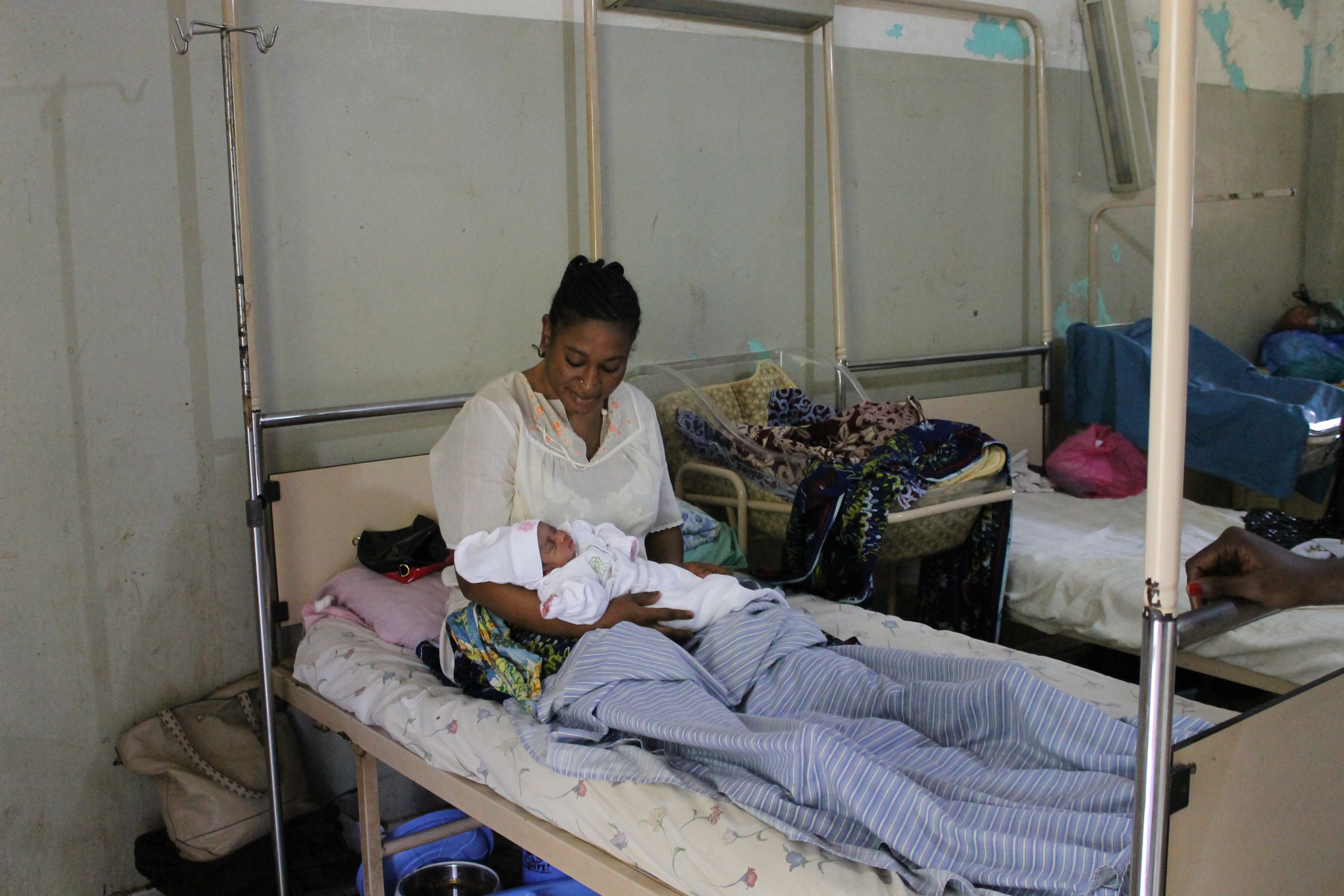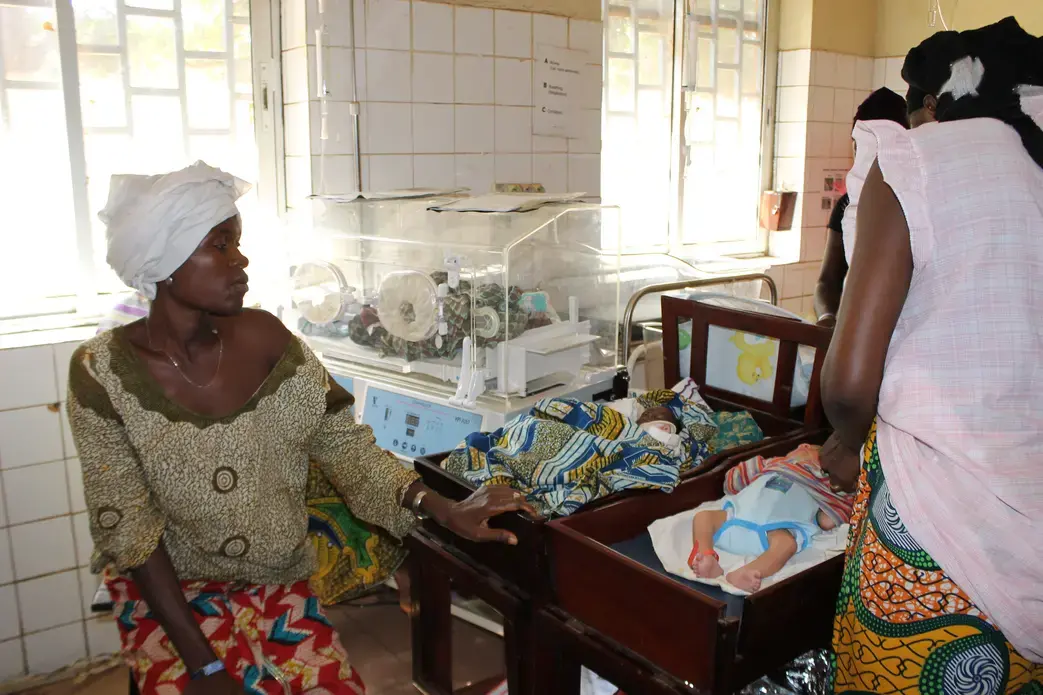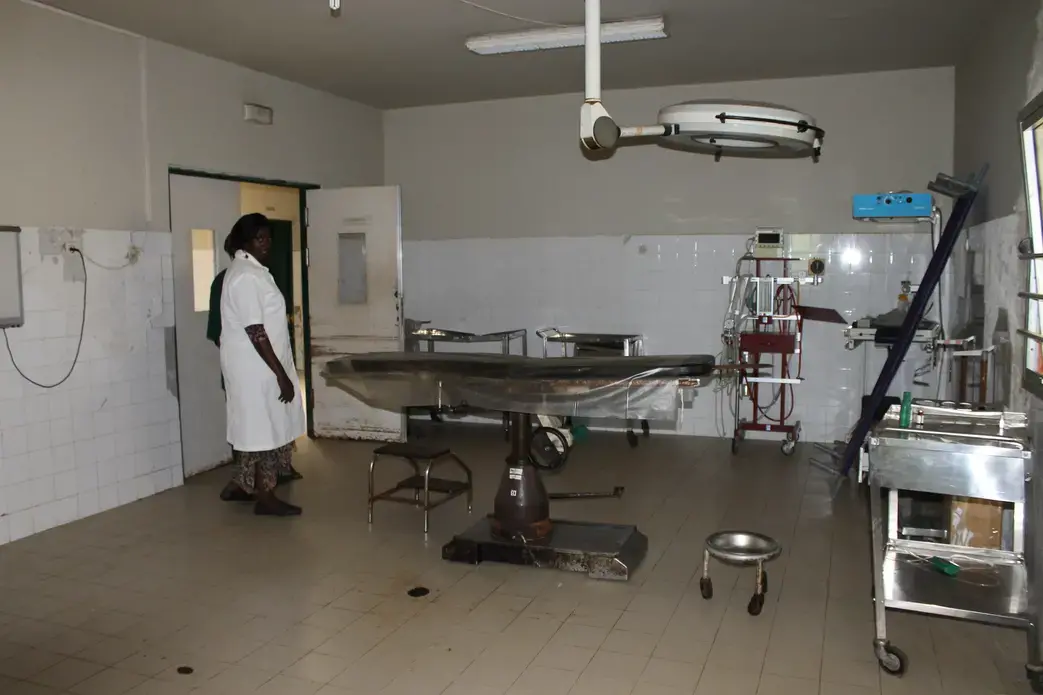"The biggest problems at Donka are no electricity, no water, no equipment, no sanitation and very high rates of infection," said Bintu Cisse, adjunct midwife supervisor, who has worked at Donka National Hospital for 20 years. Donka, the largest medical center in Guinea, is run by the government and maintains short and long term partnerships with international aid organizations such as UNICEF and MSF (Medecins sans Frontieres or Doctors Without Borders). External support provides some operational assistance, but Donka lacks basic facilities due to the inefficiency of Guinea's under-performing infrastructure.
Inside the maternity ward operating room, Cisse pointed out that the equipment did not work and doctors used suspended basins of water and a mixture of chlorine to sanitize. The main light sources were open windows—outside garbage was burning.
In developing countries, rates of hospital-acquired infections can be higher than 25 percent, while in developed countries the rate is about 5 to 10 percent. At Donka, lack of water and improperly sterilized equipment contribute to the hospital's high infection rate.
"Every month, more than 700 babies are born at Donka; over 200 of those births are caesareans. That's major surgery with no electricity or water," Cisse said. In 2013, of the 8,165 births at Donka, 2,958 were caesareans. In one day, Cisse said, doctors perform up to 10 caesareans. In January 2013, there were 10 maternal and 29 infant deaths. The main cause of death is hemorrhage—when women arrive severely bleeding, the hospital has limited resources to stop it. According to the World Health Organization (WHO), 88 to 98 percent of maternal deaths are preventable if appropriate emergency medical interventions are accessed in a timely manner.
Though maternity care, including caesarean surgery, is free at Donka, many women don't come to the hospital until there is a problem. Families prefer to go to a private clinic that can provide higher quality care. This is the minority however, because over 70 percent of Guineans live in poverty. There is no national health care coverage or insurance provider, and it wasn't until 2010 that the newly elected president Alpha Conde implemented free maternity care at all government hospitals.
Donka is a university teaching hospital where medical students perform their practical training. Though resources are limited at Donka, this is where medical students learn and prepare for their professional careers. Cisse said, "Guinea is a developing country, and Donka is not like hospitals in America. We need everything here."
Opposite the maternity ward, in a small crowded room without electricity, a dozen doctors, nurses and interns hover over eight newborns on exam tables with makeshift heating lamps and oxygen masks. "This is the only children's hospital in the country; we don't turn families away," said Dr. Namandian Keita, chief of the neonatal unit.
Keita has worked at Donka for 10 years and his tiny office, like every space in the neonatal unit, is always filled with people. The ground-level, mostly open-air neonatal unit is crowded with babies nestled in slings wrapped around their mothers' waists and doctors consulting with families in hallways and in outdoor waiting areas. Keita explained that in a few hours the eight newborns in the initial observation room would move into other rooms and the room would again fill. "There is not enough space or equipment, so what do we do? We find more room and make our own equipment," he said.
Four rooms in the neonatal unit were set up for observation and treatment. The next room was larger and had 20 babies in bassinets covered in mosquito netting. These babies were well enough to go home and were being prepared for discharge. Another small room had 10 babies—some in bassinets but most in shared incubators that did not work. Across the hall was the smallest room where a mother rested on a cot while her triplets slept in an incubator. Lying beside her was the newborn of another mother who was sleeping on the cot next her. Everything in the room was donated by MSF, but the medical equipment no longer worked.
Now that a two-year contract with MSF has ended, Donka is unable to maintain the services that were offered. "When MSF was here, we had electricity and water and machines that worked. Everything was free, but now families have to pay," Keita said.
Just across the courtyard from the neonatal unit is the nutrition center. All services are free for under ongoing partnerships with UNICEF and the World Food Program. Overlooking the courtyard, mothers sit on benches beside their young children who are eating from little dishes with tiny spoons.
For decades Guinea has received support from bilateral and multilateral donors. Most of these partnerships require provisions on the part of the Guinean government. And if the government doesn't deliver, investments are pulled and partnerships are terminated. Recently, due to political instability, donors put holds on funding in order to wait out government transitions. These suspensions have significant impact on the healthcare sector. Like many developing nations, Guinea's government struggles with not being able to capitalize on these investments.
Throughout the hospital wards and rooms at Donka, broken medical equipment labeled with the names of past donors sits unused in corners. Similar sights appear everywhere in Guinea and contribute to the argument about whether or not foreign aid fosters or delays development. The resounding echo of doctors and nurses at Donka was that more aid is needed in order for progress to be sustained. The reality that doctors and midwives at Donka witness everyday is that the maternal mortality and under-five mortality rates are the leading disparities between rich and poor countries.








